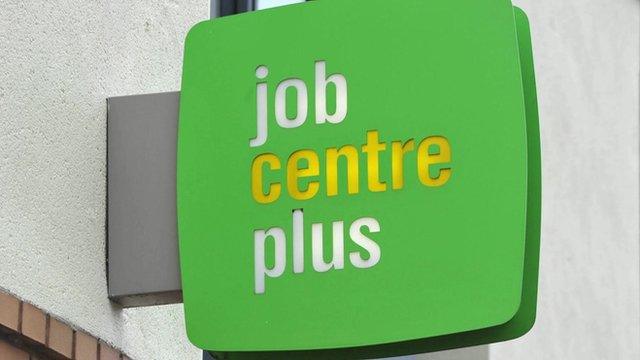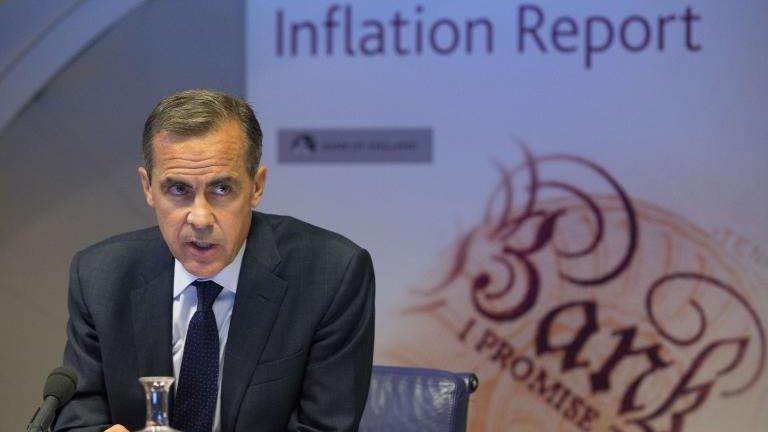UK unemployment falls by 4,000 to 2.51 million
- Published
Work and Pensions Minister Steve Webb: "My sense is, as the year has gone on, things have picked up"
UK unemployment fell by 4,000 in the three months to June leaving 2.51 million out of work, says the Office for National Statistics (ONS).
The number of people claiming Jobseeker's Allowance in July fell more sharply, down by 29,000 to 1.4 million.
The unemployment rate remains at 7.8%, still well above the 7% rate target set by the Bank of England.
The Bank's governor, Mark Carney, says interest rates are unlikely to rise before that target is reached.
The ONS said the figures, external meant unemployment was "broadly unchanged" from the first three months of the year.
The number of people in work increased by 69,000 in the three months to June, up to 29.78 million. That is the highest level since records began in 1971.
That means 307,000 more people are in employment in the UK, compared with the same time last year.
The ONS's David Freeman said two-thirds of this increase had been seen in UK nationals. A third of the employment increase came from non-UK nationals working in the UK.
Mixed picture
Analysts said the figures portrayed a mixed picture of the UK jobs market.
"Despite some good news in the latest jobs figures there are worrying signs about the underlying state of the UK jobs market," said John Philpott, from the think tank, The Jobs Economist.
"The rise in employment is almost matched by an increase in the size of the workforce, which means the unemployment rate is unchanged at 7.8%.
"The headline jobs figures may continue to be broadly positive but one only has to dig a little deeper into the statistics to see that millions of people are continuing to be hit by a combination of lack of jobs and a ceaseless sharp fall in the real value of their pay."
Long-term
Youth unemployment, among those aged 16-24, increased by 15,000 to reach 973,000.
The number of people out of work for more than two years also rose by 10,000 to 474,000, the highest number in 16 years.
The ONS also released figures showing that wages grew by 1.1% over the past 12 months. When bonuses were included, wages grew by 2.1% - the highest annual growth rate since June 2011.
The small fall in unemployment comes a week after Mr Carney linked the Bank of England's interest rate policy decisions to the unemployment rate for the first time.
Shadow Employment Minister Stephen Timms says there are "real problems" with youth and long-term unemployment
He said the MPC will not consider raising interest rates until the unemployment rate falls below 7%, which he predicted would take about three years and the creation of 750,000 jobs.
Work and Pensions minister Steve Webb told the BBC that "things were starting to look much more positive". He said the jobs figures added to a general picture of an economy that was starting to pick up.
But Labour's shadow employment minister, Stephen Timms, said the reality was that for ordinary families things were getting "harder not easier", highlighting the rise in part-time workers.
"Ministers just sound out of touch when they ignore the fact that the number of people who are working part-time because they cannot find a full-time job is at record levels," he said.
- Published14 August 2013

- Published11 August 2013

- Published7 August 2013
